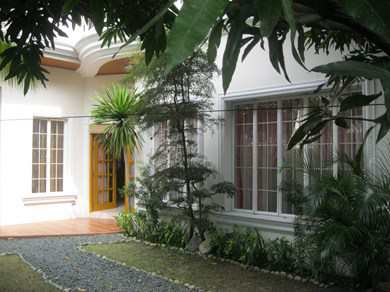Buying a house and lot is one of the most significant investments you'll make in your lifetime. In the Philippines, where property values and living conditions vary greatly across regions, it's crucial to make well-informed decisions. Whether you're looking for a property in Metro Manila, a serene lot in the provinces, or a coastal home, these tips will guide you through the process of finding and purchasing the perfect lot or land for your temporary or permanent residency. Making smart financial decisions and understanding the local market can help ensure a successful investment.
- Check Utilities Availability: Before purchasing any land, ensure that the city or community utilities such as water and sewer connections are available. In the Philippines, water supply can be inconsistent, especially in rural areas, so verify that there is a reliable source of clean water. Also, check if the area is covered by local water districts or if deep wells are commonly used.
- Ensure Electricity and Phone Services: Make sure that electricity and phone services are readily available at the property. In some remote areas of the Philippines, power outages can be frequent, so inquire about the stability of electricity supply. Additionally, check for the availability of internet services, which are essential in today’s digital age.
- Road Access and Maintenance Agreements: If the land you wish to purchase is not accessible by a public road, confirm that there is a road maintenance agreement in place. This is crucial in the Philippines, where private roads can sometimes be neglected. Ensure that there is a clear agreement on how road maintenance costs will be shared among residents.
- Review Restrictive Covenants: If the lot or land is under construction or further development, ask for a copy of the restrictive covenants. These documents outline restrictions such as minimum house size, allowable structures, and other limitations. In the Philippines, some subdivisions have strict rules on building designs and aesthetics to maintain uniformity.
- Inquire About Zoning Changes: Ask the city planning office if there are any planned zoning changes in the area. Projects like new road construction, commercial developments, or government infrastructure projects can significantly impact property value and living conditions. Knowing future developments can help you make a strategic investment.
- Study the Deed: Examine the deed to see if other people have rights to use the land in any way, even after purchase. In the Philippines, issues like right of way and easements are common. Ensure that the property you are buying does not have unresolved legal issues that could affect your ownership.
- Budget Wisely: Aim for a home within your budget. In the Philippines, housing loans are available through banks and government institutions like Pag-IBIG Fund. A good rule of thumb is that your housing costs should not exceed two and a half times your annual salary. Take advantage of home loan calculators offered by banks to plan your finances.
- Proximity to Institutions: It is highly recommended to buy land in a community with institutions such as hospitals, schools, churches, and markets. In the Philippines, living close to these amenities adds convenience and value to your property. Consider the traffic situation and accessibility of these places from your potential home.
- Seek Professional Advice: Don't hesitate to seek help from real estate professionals about buying techniques and bidding strategies. In the Philippines, real estate brokers can provide valuable insights and assistance throughout the buying process. They can also help you navigate local regulations and market conditions.
- Bidding Strategies: Base your opening bid on the sales trends of similar homes in the neighborhood. In the Philippines, it’s common to negotiate the asking price. Look at recent sales data and make an informed bid that reflects the current market conditions.
- Hire a Home Inspector: If you can afford it, hire a home inspector, preferably an engineer with experience in the area. They can identify potential problems that need addressing before you finalize the purchase. In the Philippines, having an expert’s opinion can save you from future costly repairs and ensure the property’s quality.
- Avoid Rushing: Take your time with this important decision. Careful planning and serious consideration are required. In the Philippines, the process can take several months, including getting expert help, shopping for a house, getting approved for a mortgage, and closing escrow.
- Negotiate with Sellers: Counteract sellers by convincing them that the house is not worth the asking price based on current market data. Use recent sales data to support your negotiation. In the Philippines, showing comparable property prices can be an effective negotiation strategy.
- Create Doubt About House Value: Use negotiation points to create reasonable doubt about the house's value, potentially lowering the price. Highlight any issues or necessary repairs to justify your lower offer.
- Prioritize Safety and Security: Safety and security should be paramount. Inspect not only the house but also the environment. In the Philippines, consider the area's crime rate, presence of security measures like gated communities, and natural disaster risks. Ensure the surroundings are clean and safe, contributing to the overall security of your family.
By following these tips, home buyers in the Philippines can make informed decisions and find the perfect lot or land for their needs. Whether you are looking for a temporary residence or a permanent home, these guidelines will help you navigate the process with confidence. Understanding the financial implications and making strategic decisions in the real estate market will ensure that your property purchase is a sound investment. If you’re also considering a condominium purchase, our guide on buying a condo in the Philippines offers valuable insights tailored to urban living. Happy house hunting!